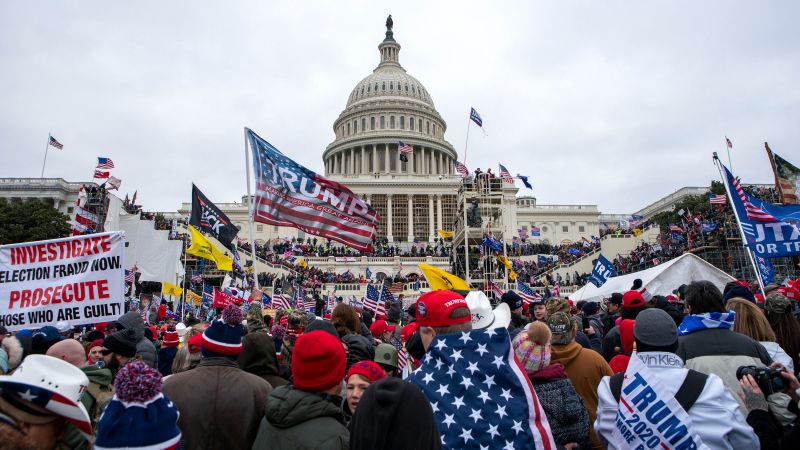In a significant decision, the Supreme Court on Friday limited the power of prosecutors to pursue obstruction charges against individuals involved in the riot at the US Capitol on January 6, 2021. The ruling could impact the sentences of hundreds of defendants. The majority opinion, written by Chief Justice John Roberts, narrowed a law that prohibits obstructing an official proceeding, making it potentially necessary to revisit cases against some rioters. This decision carries implications for former President Donald Trump, who faces similar charges.
Former President Trump, who had been charged with obstruction, viewed the ruling as a victory against the Justice Department. His legal team is expected to file motions to challenge the obstruction charges against him but may not see the case dismissed. The Supreme Court’s decision does not directly address Trump’s involvement in the fake electors scheme, but it may still pose challenges for him.
The Justice Department has 249 pending cases involving the obstruction charge related to the Capitol riot. The court’s ruling gives prosecutors the opportunity to refile cases against some rioters accused of obstruction, as it allows for prosecution in situations where individuals attempted to impact documents used in an official proceeding.
Attorney General Merrick Garland expressed disappointment in the ruling, as it limits the law’s intended consequences for those responsible for the Capitol attack. However, he noted that the number of people who could see reduced sentences is likely limited. Some rioters may seek a review of their sentences, with at least one federal judge in DC already planning to re-sentence individuals convicted of obstruction.
The Supreme Court’s decision in Fischer v. US was split with a 6-3 vote, transcending traditional ideological lines. Justice Ketanji Brown Jackson joined the majority, while Justice Amy Coney Barrett wrote an opinion with two liberal justices. The ruling hinged on a legalistic debate over the language in the law and its application to the Capitol riot. The justices largely avoided discussing the events of January 6, 2021, focusing instead on the technical aspects of the law.
Despite the political and legal implications of the ruling, the decision does not signify approval or condoning of the Capitol attack. The court’s role was to interpret the law as written, and the decision reflects a narrower definition of obstruction charges in this context.











